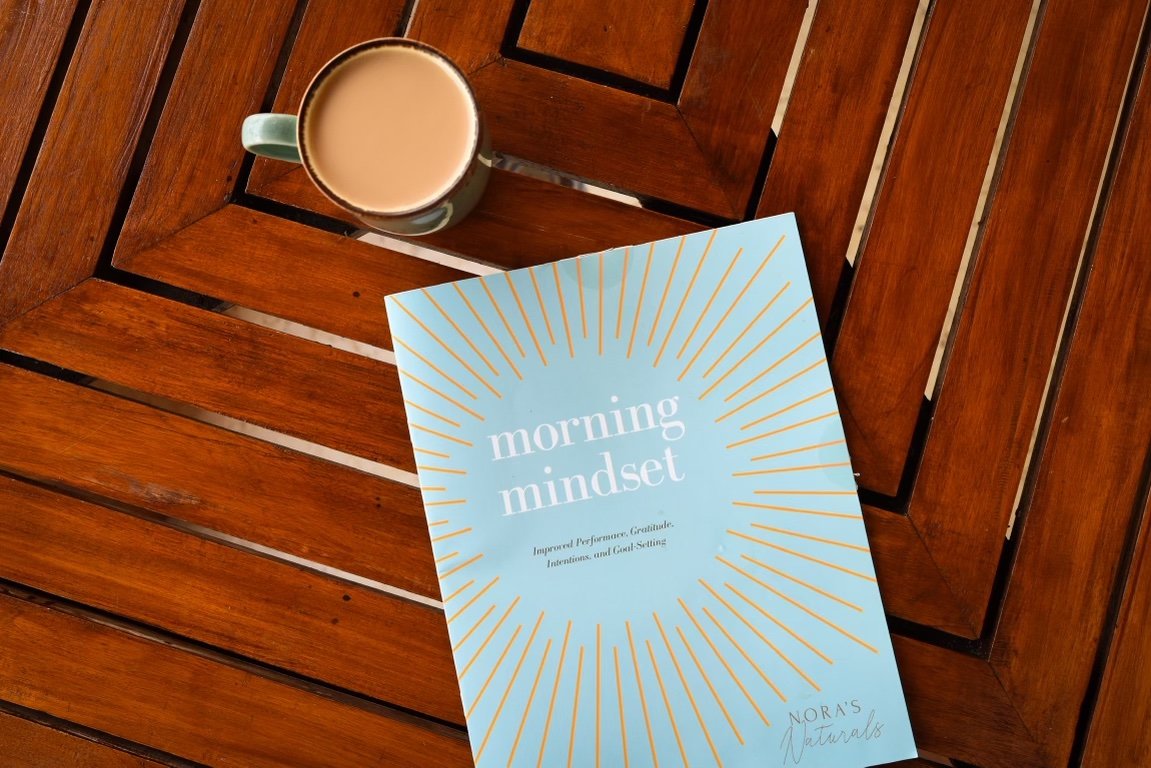Expressing gratitude simply shifts our attention away from thought patterns that do not support wellbeing, to a different state that stimulates joy and appreciation. A sample of five hundred students from Tsinghua University completed measures of gratitude, depression, peace of mind and rumination. Structural equation modeling showed that peace of mind and rumination synched the relationship between gratitude and depression. Results of a present study suggested that gratitude may not only lower depression, but may also counteract the symptoms of depression by enhancing a state of peace of mind and reducing ruminative thinking.
Check out Nora’s Naturals Morning Mindset book for more tips on enhancing gratitude!
Schedule 5-minutes in the morning to complete the prompts below:
What are three things I am grateful for and why? (These can be simple or grand.)
What is one act of kindness that I can create today?
Who are three people I am grateful for and why?

